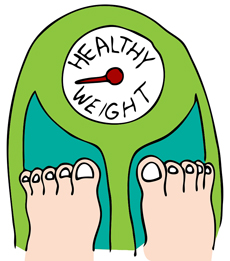Can You Lose Weight at the Gym Without Dieting?
Losing weight is a journey that many embark on with a mix of excitement and trepidation. The common narrative suggests that diet plays a more significant role than exercise in this quest. But what if you’re more inclined to hit the gym than overhaul your diet? Can you still see the scale tip in your favor? Let’s dive into the nuances of losing weight through exercise alone and debunk some myths along the way.
Table of Contents
Understanding Weight Loss
At its core, weight loss is about creating a calorie deficit—burning more calories than you consume. While diet directly influences your calorie intake, exercise affects how many calories you burn. It’s a delicate balance, but understanding the science behind weight loss can empower your efforts.
The Gym Experience
The gym offers a plethora of ways to burn calories, from the treadmill to the weight room. Cardio exercises like running, cycling, and swimming are excellent for burning calories quickly, while strength training helps build muscle, which can boost your metabolism over time.
Can You Lose Weight at the Gym Without Dieting?
Yes, but with caveats. Exercise alone can lead to weight loss, provided you’re burning enough calories to create a deficit. However, this approach may require more time and effort than combining diet and exercise, as compensating for a high-calorie intake through exercise alone is challenging.
Challenges of Relying Solely on Exercise
One significant challenge is the compensation effect—increasing food intake or decreasing activity levels after exercising, often subconsciously. Additionally, relying solely on exercise without dietary changes can slow metabolism, making weight loss more difficult.
Benefits of Exercise Beyond Weight Loss
Exercise is not just about shedding pounds; it’s also about improving your mental and physical health. Regular physical activity can enhance mood, reduce stress, and lower the risk of chronic diseases, providing benefits that transcend the numbers on a scale.
Integrating Diet and Exercise for Optimal Results
For those looking to maximize weight loss and health benefits, combining exercise with dietary changes is key. This doesn’t mean drastic diets but rather incorporating more whole foods, fruits, and vegetables into your meals.
Setting Realistic Goals
Weight loss is a marathon, not a sprint. Setting realistic, achievable goals can prevent disappointment and help maintain motivation over the long term.
The Role of Consistency
Consistency in exercising is crucial for weight loss. Regular physical activity, even if it’s not every day, can lead to significant results over time.
Listening to Your Body
Understanding and respecting your body’s limits is essential to avoid injury and burnout. Rest and recovery are as important as the workouts themselves.
Supplementing Exercise with Healthy Eating Habits
Small dietary adjustments, like reducing sugar intake and increasing water consumption, can significantly enhance exercise efforts and overall well-being.
Common Myths About Exercise and Weight Loss
Many believe that certain exercises can target fat loss in specific body areas or that more sweat equals more weight loss. These myths are not supported by science; weight loss is a holistic process that varies from person to person.
Tools and Resources for Success
Leveraging technology, like fitness apps and activity trackers, can provide insights and motivation. Additionally, a supportive community, whether online or in person, can greatly enhance your journey.
Conclusion
While it’s possible to lose weight through exercise alone, integrating healthy eating habits and setting realistic goals can provide a more balanced and sustainable path to weight loss. Remember, the journey to a healthier self is not just about the weight you lose but the health and happiness you gain.

FAQs
- How much exercise is needed to lose weight without dieting?
- The amount varies, but generally, more than the recommended 150 minutes of moderate exercise per week may be necessary to see significant weight loss without dietary changes.
- Can strength training alone help me lose weight?
- Yes, strength training builds muscle, which can increase your resting metabolic rate, aiding in weight loss over time.
- Is it better to exercise in the morning or evening for weight loss?
- The best time is the one that fits your schedule consistently. The difference in weight loss between morning and evening exercise is negligible.
- How can I overcome weight loss plateaus with exercise?
- Mixing up your routine, increasing intensity, or incorporating different types of exercise can help overcome plateaus.
- Can exercise reduce belly fat without dieting?
- While exercise can help reduce overall body fat, targeted fat loss in specific areas, such as the belly, is not possible without overall weight loss strategies that include diet.





